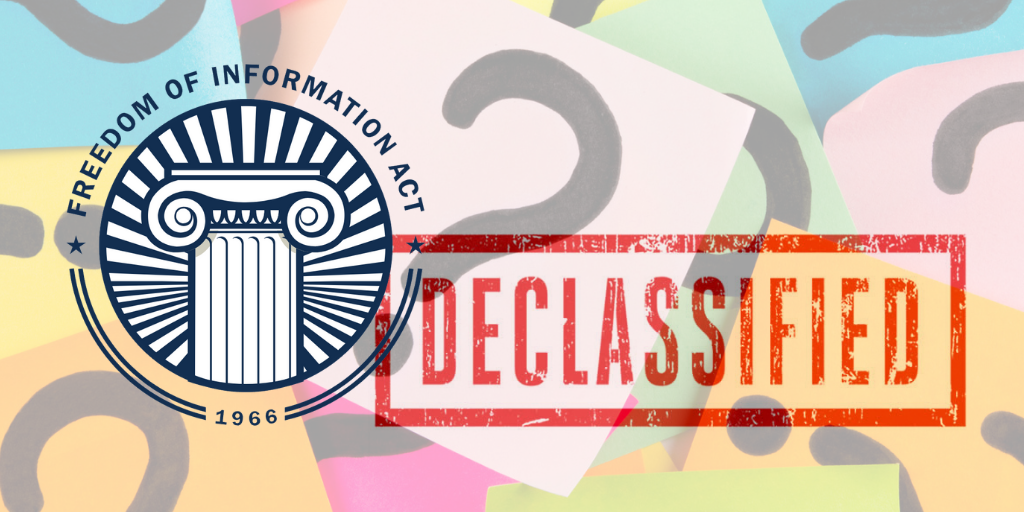|
In his long career, Daniel Patrick Moynihan both investigated the federal government’s over-reliance on secrecy as a U.S. senator and analyzed its effects on the political health of our nation as a scholar. He came to the memorable conclusion that “secrecy is a form of government regulation.”
It is regulation, however, you will find nowhere in the Federal Register. By hiding government documents from the public, the government can use classification to hide federal rules, programs and outcomes. Derivative classification – the propagation of secrecy from document to document – expands and reinforces this culture of secrecy. Thankfully, an Obama-era rule gives us a tool, Executive Order 13526, to open a window and get a glimpse into this culture. On Dec. 29, 2009, President Obama signed this order to stem government’s mindless tendency toward secrecy. PPSA is relying on the strength of that executive order today by filing a Freedom of Information Act (FOIA) request to the CIA, FBI, NSA, ODNI, Department of Justice, State Department, and National Archives and Records Administration. We are asking them to simply reveal any references to EO 13526 in their records since its adoption in 2009. Months before issuing 13526, President Barack Obama wrote: [M]y administration is committed to operating with an unprecedented level of openness. While the Government must be able to prevent the public disclosure of information where such disclosure would compromise the privacy of American citizens, national security, or other legitimate interests, a democratic government accountable to the people must be as transparent as possible and must not withhold information for self-serving reasons or simply to avoid embarrassment. The culture of secrecy is with us despite the clear intent of President Obama’s executive order. In 2009, the U.S. government had almost 55 million classified documents. Five years later, despite EO 13526, there were 77.5 million decisions to classify information. Plus ça change. But EO 13526 remains in effect. It prohibits classification to “conceal violations of law, inefficiency, or administrative error” or to “prevent embarrassment to a person, organization, or agency.” It also obligates each agency to create internal procedures to challenge improper classification decisions, with an explicit expectation that such procedures will be used. Since sections of EO 13526 impose affirmative checks on classification decisions, it is reasonable to expect citation of those sections to show up at least occasionally in intelligence community records. So PPSA is relying on this executive order to ask alphabet intelligence agencies to produce records that mention EO 13526 and its subsections. PPSA notified the agencies we are prepared to pay for the costs of these materials. We’ve also helpfully steered the agencies to the National Declassification Center and other federal offices to expedite their search. As a result of our FOIA request, we predict one of two things will happen:
There is a third possibility, of course – the agencies have never used secrecy to hide violations of the law, inefficiency, administrative error or embarrassment to a person, organization or agency … if you consider that a real possibility. Comments are closed.
|
Categories
All
|


 RSS Feed
RSS Feed